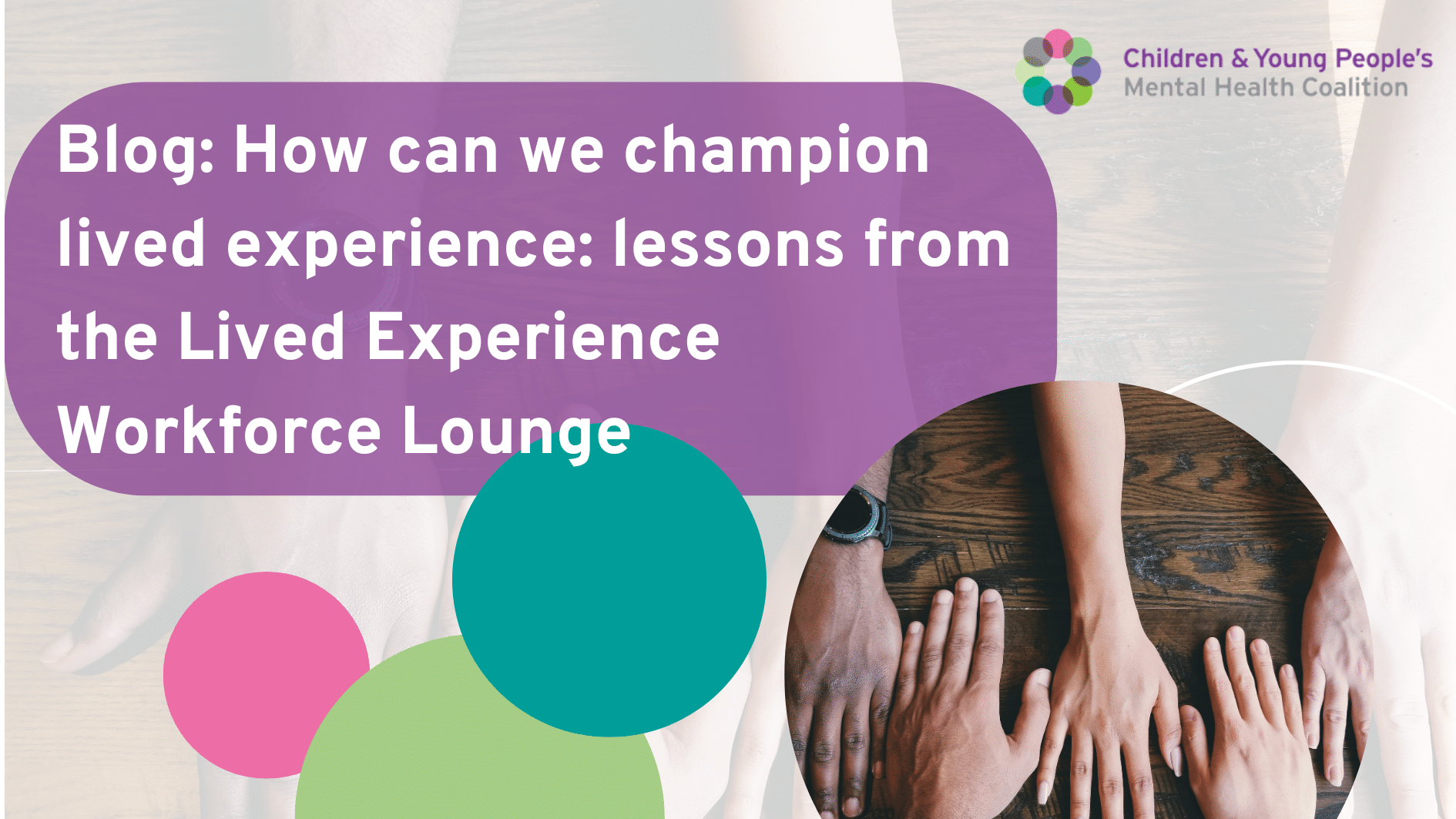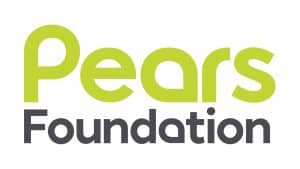At the Coalition, as a large group of organisations working together to ensure that babies, children and young people get the support that they need for their mental health, we know how important it is to make sure that the voices of people with lived experience are heard and integrated with our work. At the heart of our strategy is a promise to champion the voices of babies, children, young people and parents-carers.
But if we are being honest, for us and for many of our members, working with children, young people and families can sometimes seem daunting and the fear of ‘getting it wrong’ often prevails. On the other side, children, young people and families with lived experience can feel the weight of expectation to share their stories and can be left feeling drained and under-valued by organisations, particularly when good support systems are not in place.
So, how do we get it right? This is a question Wendy Minhinnett and Leanne Walker, both members of the lived experience workforce, have been seeking to answer.
In the summer, we worked with Wendy and Leanne to host a ‘Lived Experience Workforce Lounge’ event to bring together Coalition members, young people and parent-carers to share their experiences. Wendy and Leanne have since published the findings from this event in a new report, which the Children and Young People’s Mental Health Coalition are proud to support. In this blog, we share some of the key learnings from the event and what needs to change to better support the lived experience workforce.
What is the lived experience workforce?
The lived experience workforce is all about people who are using their lived experiences to help others and make a difference to people’s lives. Many people enter lived experience working because they don’t want others to experience the difficulties they have or want to share their experiences to help others because they know how difficult it can be.
Lived experience working, whether voluntary or paid is heart work. It’s personal, raw and vulnerable. It’s a space where boundaries between work, home and life experiences are blurred because you are bringing your personal experiences to work as part of your role. It’s a space full of promise and hope yet fraught with difficulties, inequalities and traumatic experiences. When lived experience working goes well it is truly amazing for all involved but when it goes wrong, it can hurt deeply.
Wendy and Leanne have a combined 20 years’ experience of lived experience working, they have been through the good, bad and ugly of this work. These experiences, alongside working and talking to other people in the lived experience arena led to the potential development of Nicicle (National Independent Cooperative in Children and Young People’s Mental Health Lived Experience). The work is in the early stages but at the heart of it is advocating for better conditions for lived experience working because this work needs adjustments and support, it can’t just fit in existing systems & processes. It deserves a rightful place in a system that aims to meet the needs and bring equity to the lived experience workforce.
What are the challenges the lived experience workforce face?
- Feeling under-valued
The importance of respect and recognition of lived experience roles in professional settings was a key theme. We heard how often, the lived experience workforce, feels unheard, not taken seriously enough and are not considered as partners. As one person shared, it is crucial that members of the lived experience workforce are made to feel ‘Valued, recognised, embedded, and seen as a professional.’
- Working in a rigid system
We heard in the session that the traditional way the system works can limit the effectiveness and integration of lived experience. For example, participants raised that systems often operate with biases about lived experience and that some systems are tied to medical approaches. This means that they are not always willing to be flexible enough to wholeheartedly integrate the voices of the lived experience workforce. As a result, work can be tokenistic.
Others also raised that the voices of marginalised people and those harmed by the system are not often heard whereas the voices of those that are ‘nice, white and able-bodied’ are valued more. Other issues involved being asked to join meetings without adaptations, not accepting boundaries and expecting personal difficulties to be shared without consideration of support needs.
- Lack of funding
A lack of consistent funding means that lived experience projects and roles often lack sustainability. In addition to this, individually, the lived experience workforce are often not paid sufficiently for the work that they do. For example, one participant raised their experience of ‘professionals expecting you to attend meetings but not being reimbursed/ paid for this’. The lived experience workforce cannot and should not be expected to work for free. However, because the workforce tends to feel so strongly about the importance of the work they do, they remain committed to doing it despite a lack of funding and this can often lead to burnout.
- Career progression
There is also a lack of career progression opportunities for the lived experience workforce. When discussing what success would look like one person raised that it would look like having a visible career path and knowing that the work would not be a one off opportunity but a long term role with potential to grow. This was a shared concern with others recognising that there can be a lack of career opportunities following the end of a contract or project.
What needs to change?
There was wide-ranging consensus that better support is needed for the lived experience workforce. This included:
- Ensuring that the workforce has sufficient support to avoid burnout and look after wellbeing
- Supervision and support to oversee lived experience partners
- Adjustments and tailored support, not just fitting lived experience partners into existing systems
- Mindfulness of traumatic experiences and avoiding re-triggering trauma
- Sufficient and secure funding to ensure sustainability
- Creating visibility of career pathways and opportunities for progression.
Please do take the time to read the report and find out more about what other crucial insights the report highlighted about lived experience working!
Next steps for Nicicle
Nicicle is evolving with each conversation. A working group has been set up, made up of passionate people with lived experience, carers and people working in the system, to look at where we go next with this work and how Nicicle should develop. If you are interested in getting involved or learning more about Nicicle please contact Wendy and Leanne:





